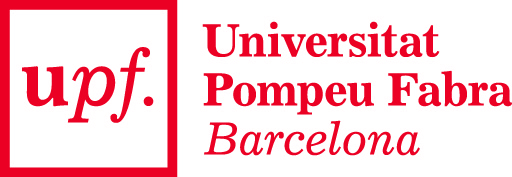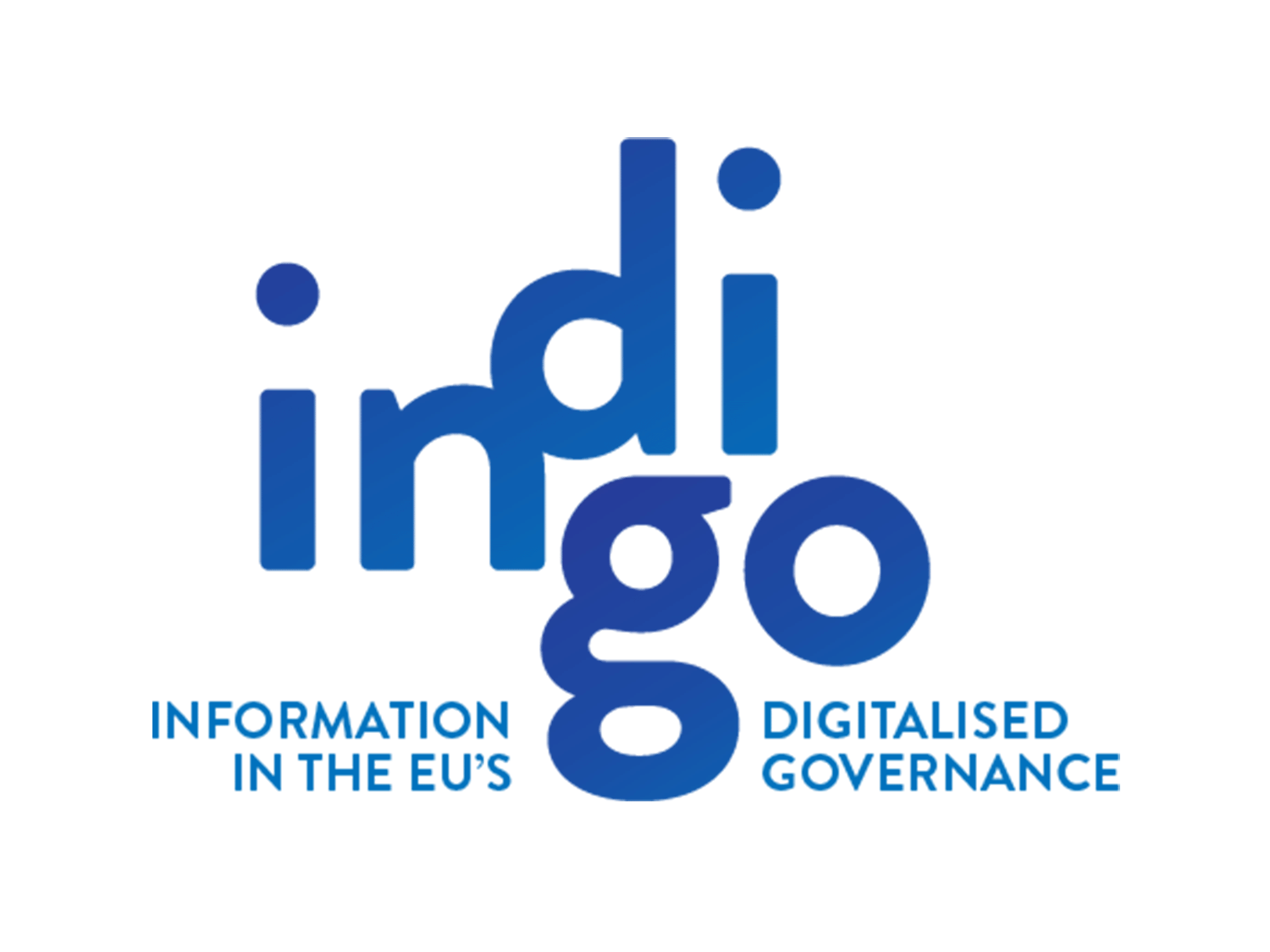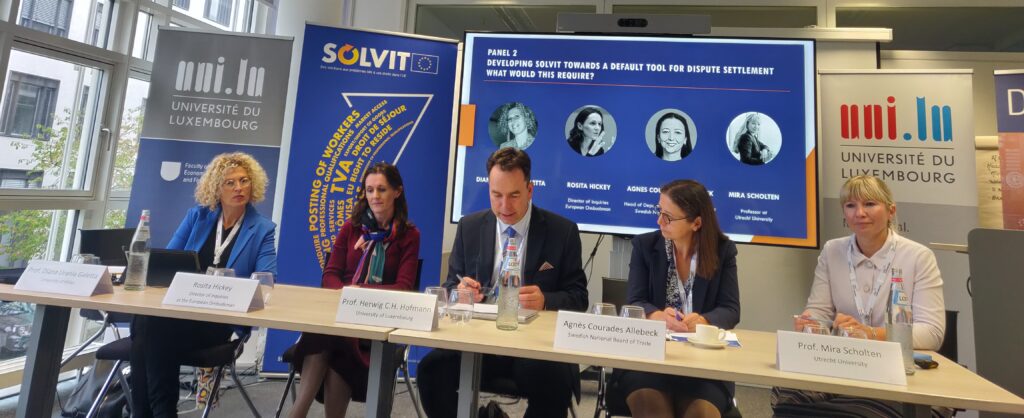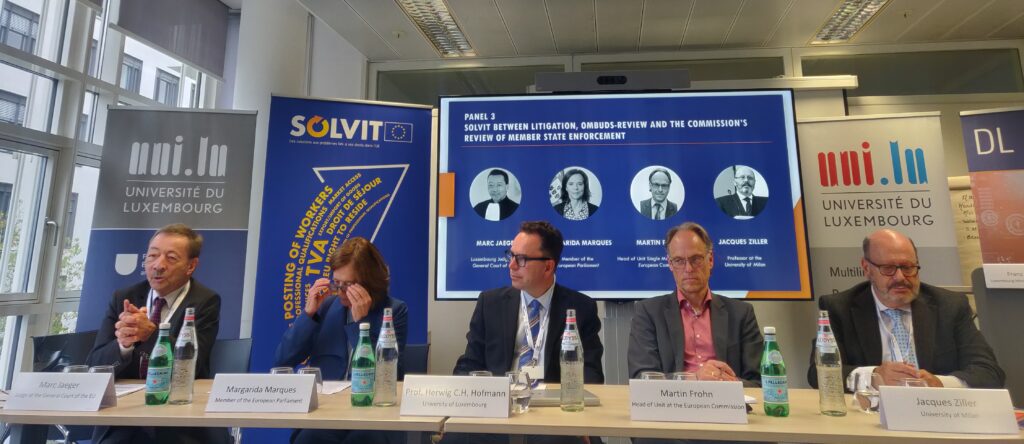SOLVIT is a network of 30 national centers based in government departments and agencies in all EU countries and in Iceland, Norway and Lichtenstein. It provides free-of-charge assistance to resolve cross-border problems and barriers individuals and businesses face when exercising their rights in the Single Market.
Making SOLVIT the default tool for dispute settlement in the EU’s Single Market is amongst the explicit policy goals formulated by the European Commission’s Single Market action plan [COM (2020) 94 final]. What this would mean and require is the topic of this conference at the occasion of SOLVIT’s 20th anniversary.
The conference will focus on the development of SOLVIT from an information exchange system based on the Internal Market Information System (IMI) towards a more complex tool designed to ensure the decentralization of the implementation of EU law under the monitoring of the European Commission. The conference will also provide an opportunity to reflect more broadly on the need for reform in the implementation of Single Market law.
Programme
-
10.30 – 10.45
Welcome remarks
Key topics
-
10.45 – 12.05
First part: 20 years of experience with and evolution of SOLVIT – what do we learn?
Topics:
- Development of SOLVIT: mandate, complaint handling procedure, IMI, role of the European Commission, follow-up of structural and recurrent cases
- Recent legal developments: the SOLVIT problem-solving procedure in the Mutual Recognition Regulation
- Persistent barriers in the Single Market and SOLVIT’s struggles
- Reflection on the adaptation of the SOLVIT structure (IMI)/legal basis (Recommendation) and working methods to the current challenges of the network
Discussants:
- Anoushka Janssens: Team leader of the internal market problem solving network SOLVIT, European Commission
- Cindy Bauwens: Head of the Luxembourg SOLVIT Centre, Ministry of the Economy
- Rosarinho Melancia: Head of the Portugal SOLVIT Centre, Ministry of Foreign Affairs
- Heike Otterbein: Seconded National Expert at the European Commission, Former Head of SOLVIT France
-
12.05 – 13.05
Lunch break
-
13.05 – 14.25
Second part: Developing SOLVIT towards a default tool for dispute settlement – what this would require
Topics:
- SOLVIT, the need of a SOLVIT binding legal basis at EU level?
- The decentralization of enforcement
- The need of a Single Market Ombudsman in every EU state?
- Procedural requirements for an enhanced SOLVIT mandate
Discussants:
- Prof. Diana Urania Galetta, University of Milan
- Rosita Hickey, Director of Inquiries at the European Ombudsman
- Agnès Courades Allebeck: Head of Department for the Single Market at the Swedish National Board of Trade
- Prof. Mira Scholten, Utrecht University
-
14.25 – 15.55
Coffee break
-
15.55-17.15
Third part: SOLVIT between litigation, ombuds-review and the Commission’s review of Member State enforcement
Topics:
- The role of the European Commission and ECJ in EU law enforcement
- Litigation vs alternative dispute settlement tools such as SOLVIT
- Ombuds-review and SOLVIT or SOLVIT as Ombuds-system?
Discussants:
- Marc Jaeger, Tribunal CJUE
- Mrs. Margarida Marques, Member of the European Parliament
- Martin Frohn, Head of Unit Single Market Enforcement, European Commission
- Prof. Jacques Ziller, Milan
-
17.15 – 17.30
Closing remarks
Franz Fayot, Luxembourg Minister of the Economy
Retrospective view
On October 14, 2022 the University of Luxembourg was the place where people met and discussed about the SOLVIT. SOLVIT is a free online dispute resolution network for citizens and businesses that encounter problems with the public administrations of EU, Iceland, Norway & Liechtenstein. Launched 2002, it has 20 birthday this year, which is a great time to look back and reconsider the success of the system as well as to look into the future of SOLVIT. Should it become a default tool for dispute resolution in the Single Market? If yes, how?
In the Conference closing remarks the Minister of Economy of Luxembourg Franz Fayot called for SOLVIT to be strengthened. He invited to improve the application of the existing rules of SOLVIT and if necessary to develop new legislative initiatives. He excelled the high significance of SOLVIT for the EU citizens and highlighted that if SOLVIT will be strengthened, everyone will benefit.
We thank to all the participants for the fruitful discussions!
In partnership with






This project has received funding from the European Union’s Horizon 2020 research and innovation programme under grand agreement No 822166.


